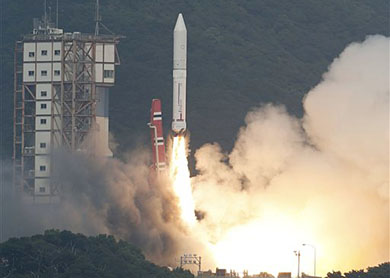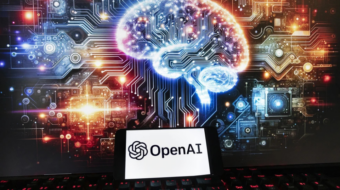
Ever since humans started using sharp rocks to hunt and craft, advancing technology has driven development. Throughout history, scientific and technological innovations have shaped the dynamics of society. Turning to the future, it is necessary to look at the functioning of new socialist nations not only through social, political, and economic lenses, but through a technological one as well. How will the scientific advances of the next few decades shape a future socialist society?
Ten thousand years ago, the development of plowing technologies and the domestication of animals for labor increased the efficiency of food production, creating a new surplus of food. This allowed for specialization within the society, as every single individual was no longer required to spend their time collecting food; they could become blacksmiths, leather workers, writers, scientists. The very nature of the society was changed from nomadic living to living in small villages or towns. The rate of change of scientific advance increased exponentially, laying down the groundwork for yet more technological advancements.
At the turn of the 19th century, the formation of modern industrial capitalism was driven by the industrial revolution. The transition from feudalism and agrarian capitalism was allowed for by the development of more efficient technologies; industrial processes increased the efficiency of production, allowing for the accumulation of capital and the shift from mercantilists to factory workers and laborers as the drivers of the economy, and giving rise to the class relationships of industrial capitalism. Steam engines increased industrial production levels, made transportation exponentially faster, and led the way to the harnessing of electrical energy. Once again, the very nature of society was shifted by technological advancement.
Thus, it is reasonable to believe that in the future, additional scientific advances in the next few decades will shape how our society functions. Advances in areas such as the theoretical sciences, space exploration, computing, AI, telecommunications, food production, robotics, medicine, and energy will drastically change the functioning of our world. So, in order to form an accurate view of the workings of any future socialist society, one has to take into account advancing technology and its social implications.
Changing rate of technological advancement
Many argue that without the possibility for monetary gain, there will be no incentive for technological development or invention. However, the majority of productive scientific labor is motivated by passion: intellectual challenge, self-improvement, and recognition. There is no need to supply wealth as a motivator, and in socialist society, scientific research will continue. In fact, in socialist society, the development of technology will be accelerated due to the lack of economic barriers to progress.
Research projects require funding: grants from individuals, governments, or private institutions pay scientists and allow their experiments to be carried out. The majority of research is incredibly expensive. The Large Hadron Collider in Geneva, Switzerland, for example, costs 19 million euros annually to operate in energy expenses alone. In a socialist society, scientists will not have to waste time applying for grants or giving presentations to board members – they can just do the work without having to worry about running out of funding or getting cut off.
In addition, every person fit and willing to go into a scientific field can do so. In capitalism, people from the lower classes have less opportunity to pursue scientific careers: they are required to get jobs during high school, can’t afford to go to college, and more often turn to crime, lessening their ability to get a substantial enough education to go into scientific fields. A large percentage of the population that would otherwise go into scientific fields is lost to economic strife. None of that happens in socialism; 100 percent of people willing to go into the sciences will be able to so, regardless of economic background. With more people working in the field, technology will develop that much quicker. The rate of technological development will accelerate in socialist society.
Theoretical sciences
Theoretical fields, like quantum theory and cosmology, will continue to develop, though they will have a smaller social consequence. It is of course possible that massive leaps in theoretical science will pave the way to new eras of technological advancement, sending shock waves through the workings of society, but those sorts of things are both unlikely and incredibly difficult to predict.
However, some things are liable to occur. Cosmology may advance to a point that eliminates the feasibility, or the necessity, of organized religion. Churches will dissolve, and people will be free of the indoctrination they have been under for generations. There will no longer be a secondary force on individuals, telling them what is right or wrong independently of the state. Morality and law will be taken solely from the government, and not from outside influences. Divisions and conflicts between religions will likewise dissipate, allowing for a much more productive and peaceful majority.
Space exploration
In capitalist society, space exploration is necessary (just as colonialism was) in order to expand markets, collect more resources, and find a new place for the human population to go to after our world has been destroyed. Human expansion into space is a given, driven by private enterprise and investment, to create new colonies on far off worlds and to mine asteroids and neighboring planets. The continued rape of the environment by capitalists is being accounted for in drives to find new planets to settle on and new places from which to rip natural resources, making space exploration a necessity.
But what about socialism? Socialism does not require an infinite expansion of markets, an ever-growing collection of resources, or a new planet to which humanity can flee. Much of socialist ideology is about sustainability and collecting resources efficiently and safely, hoping to preserve the environment. So many would say space exploration is unnecessary, and therefore impossible, in socialist society.
But, there is an underlying human need for space exploration, regardless of economics, based on humanity’s need to “explore the unknown, discover new worlds, push the boundaries of our scientific and technical limits, and then push further,” according to NASA, the National Aeronautics and Space Administration. So, space exploration will still occur in socialism, but it will be very different than in capitalism. Without the underlying drive to generate new markets and collect new resources, the underlying force behind space exploration will be almost entirely intellectual, not economic.
In our solar system, missions to Mars, the moons Titan, Europa, and Ganymede will search for life forms out in the void. Missions to the outer reaches of the solar system will help astrophysicists understand the orbital mechanics of Pluto and its many moons. Probes sent to the gas giants will reveal secrets about their specific climates and makeup. No great social upheavals will come as a result of space exploration to the outer solar system, only greater scientific knowledge.
However, around the Earth, space exploration will have a much more tangible effect. More efficient rocket technology will make sending objects into orbit exponentially easier. The quality of space infrastructure will increase dramatically, as the number of satellites around the earth doubles and quadruples, creating much more advanced telecommunications, GPS systems, and even residences for the elderly or the families of astronauts and astronomers in geosynchronous orbit. Worldwide Wi-Fi will become available, allowing free Internet access to everyone on the planet.
In addition, space tourism will become available, carrying serious societal implications. Many have testified to the awe-inspiring power of witnessing the Earth from high above its surface. John-David Bartoe, American astrophysicist and current research manager for the International Space Station, had this to say about seeing the earth during his time on the ISS:
As I looked down, I saw a large river meandering slowly along for miles, passing from one country to another without stopping. I also saw huge forests, extending along several borders. And I watched the extent of one ocean touch the shores of separate continents. Two words leaped to mind as I looked down on all this: commonality and interdependence. We are one world.
The unifying nature of seeing the globe as one sphere, distinct and alone from anything else in the cosmos and without national borders or boundaries, has a profound effect on people, giving them an understanding that we are all one human race on our planet. This realization, felt by the majority of the population as space tourism becomes available to all, will help to completely eliminate much racist, sexist, and nationalist bigotry left over from before a socialist revolution, creating a much more unified human population.
Computing
One of the defining and driving forces behind technological development in the past half century has been computing. The exponential growth of computational ability has been driven by a principal called Moore’s Law, which states that computer power doubles about every eighteen months. This principal has allowed for massive growth in the computing industry, turning it into one of the most lucrative and powerful industries on the planet. Today, a single cell phone has more computational power than all of NASA did in 1969. In the future, computer chips smaller and more powerful than the ones we see in the cell phones and laptops of today will reside in every appliance in our homes, becoming one with the environment around us.
Renowned theoretical physicist Michio Kaku’s book Physics of the Future predicts the future of technology in the next century. In the chapter about the future of computation, he describes the world of overabundant computer chips:
“Eventually, almost everything around us will become intelligent. Chips will be so cheap they will even cost less than the plastic wrapper and will replace the bar code.”
Every device and appliance around us will be intelligent: connected to the Internet and the surroundings, able to be programmed to predict our needs and find its broken parts automatically.
The social implications of such intelligent surroundings will manifest themselves in a society of automated routine. Individuals will find themselves set into pre-programmed schedules in which every single one of their actions is preceded by an appliance or other such amenity predicting that action and carrying out their part necessary to it. All of society will function in individuals’ own fixed routines. People will turn to the arts and individual expression to escape from this mechanized, repetitive world.
In addition, the automation of many of today’s necessary maintenance will create a gap between individuals and the actions necessary to sustain their surroundings. People will no longer know how to fix leaky pipes or repair holes in their wall, not even how to make their own cups of coffee. Humanity’s very existence will lay dependent on our intelligent appliances, relying on them absolutely to even function. Broken appliances will represent a complete breakdown of their world.
Smaller and more compact chips will allow for a proliferation of personal, hands free computer devices. The national equivalent of Google Glass and other similar contact lens computers will proliferate. There will rarely be a time when any person is separate from the totality of knowledge available to the human race via the Internet. Society will become a race of know-it-alls, able to immediately find out anything about anyone.
As a result of such easy access to information, conversation will shift from facts and figures to topics of opinion and subjective distinction. Gossip and celebrity news will proliferate with universal access to gossip columns and blogs. Discussions of recent news happenings and analytical discussions of those happenings will become popular, as well as an increase in conversations about the complex topics of philosophy and morality. Fact will be expected in conversation, never disputed, and so intellectually stimulating conversation will become deeper and more profound than mere facts.
Artificial intelligence
Along with increases in computational power comes the inevitable discussion of Artificial Intelligence, or AI. According to Kaku, there are three basic milestones to achieving full, human level consciousness: pattern and environmental recognition, self-awareness, and an ability to plan and prepare for the future. While it is highly unlikely we will develop a computer capable of all of these things any time soon, especially the latter two, even lower levels of consciousness will have profound effects on society.
Basic pattern recognition and problem solving abilities will open up entirely new areas of computer application. Computers and intelligent interfaces will be able to replace many specialized professions like doctors and dentists. Computers will be able to recognize problems and suggest solutions based on the problem and individual backgrounds. This will create a drop in demand for those fields. Also, since the computers will likely only be able to replace general versions of specialists, very highly specialized individuals of the field will come into higher demand (to continue the doctor example, general care doctors will be replaced by computers while things like gastroenterologists or cardiothoracic surgeons will continue being human).
This sort of intelligent pattern recognition will also have an effect beyond the individual services level. Computers will be able to perform functions akin to those of economists or city planners or other such social servants. Computers will perform the basic planning and logistics of running the society (but the people will decide which projects to carry out, based on the advice of multiple computers and expert opinions). Computers will serve as the functional backbone of society, carrying out much of the intellectual grunt work that goes into functioning civilization, allowing for more free time for individuals to pursue other things.
As for the popularized ideas of Artificial Intelligences growing more intelligent than humans and destroying us all, that is highly unlikely. As already discussed, the likelihood of anything attaining even basic levels of human consciousness is incredibly far off. It is massively difficult to teach computers how to recognize themselves, or to have a sense of the future. Similarly, the amount of time it would take to develop such intelligences will give plenty of opportunity to design safeguards and fail safes, as well as programming the intelligence to not harm or want to harm humans, meaning that AI will not be the end of humanity as we know it.
Telecommunications
In the future, the combination of more advanced satellite infrastructure and much better and faster computing will create a massive shift in telecommunications. Cell phone service and Internet will be available across the world, in every nation and city on the planet. Processing and communicating will be faster and more effective than ever, breaking down the barriers of borders and distance.
With telecommunications reaching its peak, no human on the planet will be left disconnected from the vast realm of knowledge on the Internet. All people will be able to access quickly and easily the vast realms of knowledge available to the human race. The Internet will expand, becoming the universal source of information, communication, and socialization.
With the Internet becoming a worldwide institution (even more so than it is now), the cultures of the world will begin to evolve. English will continue expanding its reaches, becoming ever more the language of the world. A world culture will form, carrying the ebbs and flows of popularity to every corner of the Earth simultaneously. The entire planet will share its fashion, entertainment, and idiosyncrasies.
However, this does not mean the cultures of the world will disappear. The vast knowledge of the Internet will carry the memories of ancient cultures, and local cultures will meld with the global to form unique sub-cultures around the Earth, places where archaic traditions meet with the modernity of the new world. Communities will exist on two levels – one in conjunction with the global culture and one on level with the smaller local communities.
The incredibly fast and effective telecommunications will also allow for an opportunity for productive political use. A worldwide network dedicated to political, social, and economic affairs will be able to be created. Voting, debating, and even things like applying for permits or seeking ideas for new construction endeavors will be routed through this vast network, allowing for every single individual to be intimately involved in the running of society. An even greater form of true, informed democracy will arise, where every individual will be able to instantaneously be involved in political process from anywhere on earth, no matter what.
Food production
Developing technology will influence the efficiency of food production. Just as every previous technological revolution saw a massive change in society’s ability to produce food, additional advances in genetic modification and engineering will increase the efficiency of food production in the future exponentially. The totality of human civilization will be able to live in the comfort and level of consumption now given almost exclusively to Westerners, because better technology will deliver massive excesses of food to the people and distribute it fairly.
This spike in food production will be representative of a greater change in the dynamic of society. The ability for massive amounts of excess food to be produced will coincide with a shift in the very philosophy of the people. The world will turn into one of excess, where there is no more need or starvation. Labor will no longer be an act undertaken for the necessity of it, for the production of commodity equal in its utility to some amount of food or other resource necessary for life. Labor will turn away from an act of mandated wealth generation to an act of passion.
All action done in society will not be a means to an end in material resource necessary for survival, a trade of labor for food and water. It will become an action done for the mere indulgence of it: intellectual challenge, a sense of collective contribution. Work will change from an absolute necessity to a hobby, a thing of surplus and enjoyment.
Of course, other things will have to accompany the shift in food production in order to stimulate such profound change, but it is reasonable to accompany such increases in food production with technologies that will aid in the efficiency of other fields such as manual labor and health care. As well as those things necessary for life, increasing technology will also replace human labor in work necessary for the basic functions of society.
Robotics
Developing robotic technology will have perhaps the most immediate and obvious effect on society. Newer, smarter robots, combined with advances in computing and telecommunications technology discussed earlier, will be able to replace much of the labor sector. Manual labor will be done by stronger, faster robots that are simultaneously connected to all other robots so as to be organized as a whole, while being individually self-contained so as to be able to make decisions and solve problems on their own.
Robots will be able to replace almost all menial labor. Things like street cleaners, repairmen, factory workers, and maids will all be robots. Humans will no longer be needed to carry out those sorts of functions. Many argue against socialist society by saying that no one wants to do those sorts of jobs, but in reality no one will have to. Humans will take the jobs that are left, the ones not taken by robots or computers. Creative and innovative jobs will remain human tasks – jobs like inventors and writers and architects will still be carried out by people. Only the repetitive, physical labors will be taken by robots.
Medicine
Increases in medical technology will lead immediately to a much lower death rate. The amount of elderly will increase dramatically as less and less people are dying. Society will tip towards a population of mostly elderly and very few young – a population of dependents, people who cannot produce but can only consume. Luckily, the advent of robotics and computers will provide a constant supply of caretakers for the elderly, and advancing food production will make sure they never go hungry, despite their lack of utility for society.
Advances in genetic engineering will also have profound effects. The ability to clone and create species with favorable attributes will lend itself to the spike in food production, as well as the pet industry. More sophisticated ways to read and write DNA will allow for the revival of previously extinct animals and an end to the extinction of any more. Zoos and the wild will be filled with organisms old and new that will help restore the balance of nature. Modified trees and algae will reverse the runaway greenhouse effect and human-caused climate change.
The ability for human genetic engineering will also become available, with profound effects on class relations. This specific technology is capable of creating very dangerous social developments, and anything between peaceful coexistence, to riots and civil wars may occur between those who choose to modify themselves and their children and those who do not. Religious, moral, and philosophical divisions could cause massive separations between the factions, leading to new breeds of classism, racism, and even enslavement. If ever there is an area of scientific advancement to be wary of, this is it. The utmost caution must be applied to the research and legalization of every facet of this field.
Energy
As technology develops, and without the barriers of corporate lobbyists and the bottomless pockets of the oil and natural gas industries, renewable energy will thrive. New wind turbines, better hydroelectric systems, more efficient solar cells and new types of nuclear fusion will power the earth. Satellites orbiting in the charged particles of the ionosphere will beam back energy to the earth for our use.
This will create a shift in energy production, as individuals will be able to produce the amount of energy they require on their own, and additional power from state owned satellites and offshore power stations will go toward public institutions like scientific laboratories and factories. Humanity will be able to harness and use almost 100 percent of the energy falling on the Earth from the sun.
This milestone in energy will accompany the rest of the technological advancements mentioned earlier and turn society into one of giving. Robots and computers will carry out all necessary labor. Human labor will no longer be a necessity, but a hobby. No one will have to worry about starving because food production will be exponentially more efficient. Life expectancies will be massively high. Internet access will be universal, allowing for complete access to all of society’s knowledge. Political decisions will be felt intimately by the populous, and the entire population will make all of the decisions.
Humanity’s role in the new society will be the role of consumers and creators. Life will be relaxed, with all necessity provided by advanced technology. Labor will be an act of passion, and will no longer be a trade for resources, but a voluntary addition to society. Conversation will be fueled by philosophy as humans commit their time to intellectualism and free thought. The creative arts will thrive as people strive ever more and more to find beauty and individuality in the mechanized, repetitive world. People will depend ever more on their intelligent surroundings. In short, society will look nothing like it does now: driven, as it always has, by technology.
Works cited:
“Current World Population.” Worldometers.info. World Population Clock. Web. 16 Apr. 2015.
Gliniecki, Ben. “What Will Socialism Look Like?” Marxist.org. In Defense of Marxism, 14 Apr. 2015. Web. 16 Apr. 2015.
Kaku, Michio. Physics of the Future: How Science Will Shape Human Destiny and Our Daily Lives by the Year 2100. New York: Doubleday, 2011. Print.
Poynton, Darren. “The Rise of Capitalism.” The Rise of Capitalism. The Socialist Party of Great Britain, n.d. Web. 16 Apr. 2015.
“Private Space Companies.” The Space Settlement Institute. The Space Settlement Institute, n.d. Web. 17 Apr. 2015.
Strickland, Jonathan. “How the Large Hadron Collider Works.” HowStuffWorks. HowStuffWorks.com, n.d. Web. 16 Apr. 2015.
“Why We Explore.” NASA. Ed. Jennifer Wiles. National Aeronautics and Space Administration, n.d. Web. 17 Apr. 2015.
Photo: An Epsilon rocket lifts off from Kagoshima, Japan. | AP










